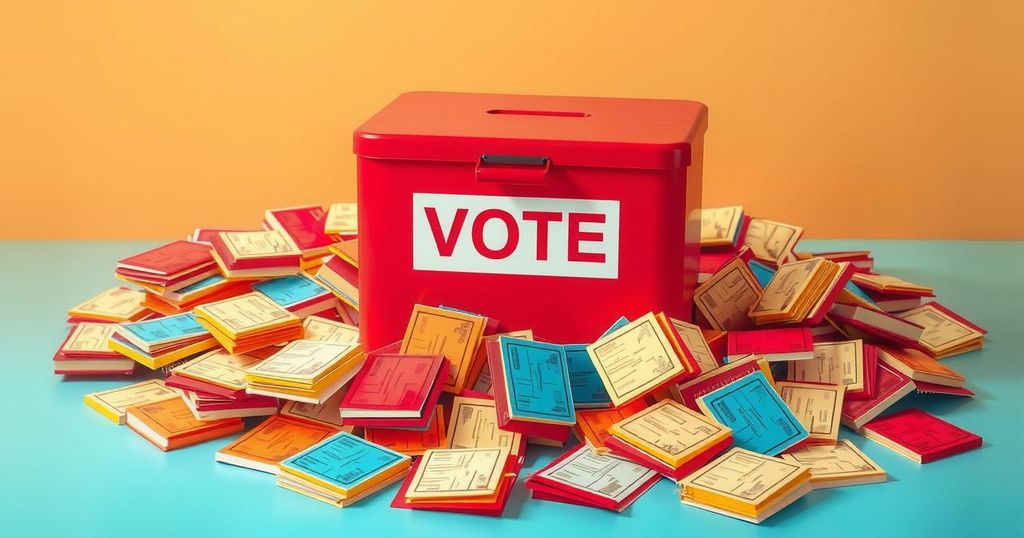Voting in the World Zionist Congress: Shaping Israel’s Future

Voting has commenced for the 39th World Zionist Congress, allowing American Jews to influence Israel’s future directly. The election is significant due to its impact on funding for Jewish causes and key issues such as religious pluralism and settlement expansion. With 152 seats available, numerous slates with varying ideologies are participating, underscoring the importance of voter engagement to ensure representation within the congress.
On Monday, voting commenced for the 39th World Zionist Congress (WZC), offering American Jews an opportunity to influence Israel’s future significantly. This election, pivotal for establishing the legislative authority within a historic Zionist organization established 128 years ago by Theodore Herzl, is crucial for shaping the balance of power in various influential institutions, including the Jewish Agency and the Jewish National Fund, which manages considerable funding and land within Israel.
Eligible voters include any Jewish adult residing in the United States who accepts certain Zionist principles and pays a nominal registration fee of $5. Voting is open from March 10 to May 4, and this election comes amidst intensified ideological conflicts between liberal and right-wing Orthodox groups, with potential repercussions on religious pluralism, Jewish education funding, settlement policies, and Israel-Diaspora relations.
Rabbi Josh Weinberg, who leads the Reform movement’s campaign, emphasized the election’s significance by stating, “This election is about nothing less than the soul of the State of Israel and the Jewish people.” He noted that various competing visions exist concerning what it means to be a Jewish state and identity, thus highlighting the election as a critical democratic process.
This year’s WZC allows American Jewry 152 seats, a notable increase from the previous election’s 15 slates. The winners will join representatives from the global Jewish community, along with members chosen from Israeli political parties, amounting to 200 additional representatives from Israel.
Several slates are vying for representation, such as Achdut Israel, which arose following the Hamas attack on October 7, 2023, focusing on supporting Israeli military efforts and promoting connection among Jewish communities. The AID Coalition aligns with protests against Prime Minister Netanyahu’s judiciary plans, while the Aish Ha’am slate promotes Orthodox Judaism and aims for Jewish unity.
Various other slates include the American Forum for Israel, Am Yisrael Chai, ANU: A New Union, and Beyachad, each representing diverse Jewish perspectives and goals. The Hatikvah Progressive Slate promotes religious pluralism and human rights, while Herut North America champions a revisionist Zionist perspective. New groups like Israel365 Action and the Israeli American Council are also entering the arena, each with unique aims.
The Jewish Future slate, supported by centrist liberal Zionism and figures from the philanthropic community, aims to advocate for inclusive Jewish identity and unity. Kol Israel emphasizes Israel-Diaspora relations, and Mercaz USA represents Conservative Judaism with a focus on democratic values.
Despite the significant turnout during the last election, with 125,000 votes cast, historically low participation has been a concern. Yizhar Hess, vice chairman of the World Zionist Organization, regards the turnout as a potential barrier to pluralism, advocating for greater engagement among the diaspora. He expressed commitment to raising awareness of this election to ensure broader representation within the congress and stated, “If the congress is called ‘the parliament of the Jewish people,’ it should reflect the makeup of world Jewry.”
The 39th World Zionist Congress election presents a critical opportunity for American Jews to influence both their and Israel’s future significantly. With influential institutions and considerable funding at stake, the upcoming election showcases a diverse spectrum of ideological positions reflecting the complexity of Jewish identity. Active participation is essential to ensure that the congress embodies the diverse perspectives and values of the global Jewish community, thereby strengthening democratic representation in Zionist governance.
Original Source: www.jpost.com







